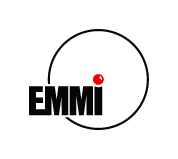Sprecher
Beschreibung
Nuclear isomers can play a pivotal role in the nucleosynthesis of elements and can have various effects on the reaction path. Some of these "astromers" are however difficult to produce and their effects hard to study under laboratory conditions.
I will discuss two isomer-related projects that are planned at TRIUMF, utilizing the decay spectroscopy setup at the TITAN Electron Beam Ion Trap (EBIT) and "breeding" isomeric states in a storage ring to measure direct neutron captures.
The unique setup at the TITAN-EBIT includes six access ports where HPGe's can be installed and used for decay spectroscopy of highly-charged ions (K.G. Leach et al., NIM A 780, 91 (2015); K.G. Leach, I. Dillmann et al., Atoms 5, 14 (2017)). This allows an almost background-free access to investigate rare decay modes like the non-competitive two-photon decay and "Nuclear Excitation by Electron Capture" (NEEC).
NEEC is a resonant atomic capture process that generates a nuclear excitation. A recently claimed first observation of this process in $^{93m}$Mo (C.J. Chiara et al., Nature 554, 216 (2018)) is in stark contrast to more modern calculations (Y. Wu et al., PRL 122, 212501 (2019)). The new calculations dispute the earlier observation since the NEEC stimulation was predicted to be 9 orders of magnitude smaller than observed.
Recent and ongoing upgrades of the TITAN-EBIT setup will allow for the first time to investigate the NEEC process in an EBIT and to challenge previous observation, hopefully solving the large discrepancy to theoretical predictions. Our experiment will involve the selective stimulation of the NEEC process in the 17.7min (19/2-) isomer $^{129m1}$Sb. A successful stimulation can then be observed by deexcitation via three characteristic gamma-transitions which are not populated by the normal isomeric transition. This experiment is planned to run in late 2022.
A new project on the horizon is the TRIUMF Storage Ring (TRISR). The TRISR will be a low-energy storage ring connected to the existing ISAC radioactive beam facility and is mainly dedicated to the direct measurement of neutron capture cross section of short-lived nuclei. I will present the project and potential reach for cross sections on short-lived radionuclides. The use of a storage ring will also allow the measurement of isomerically pure samples which can be "bred" in the ring via different storage times.

